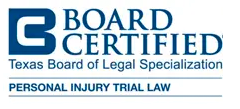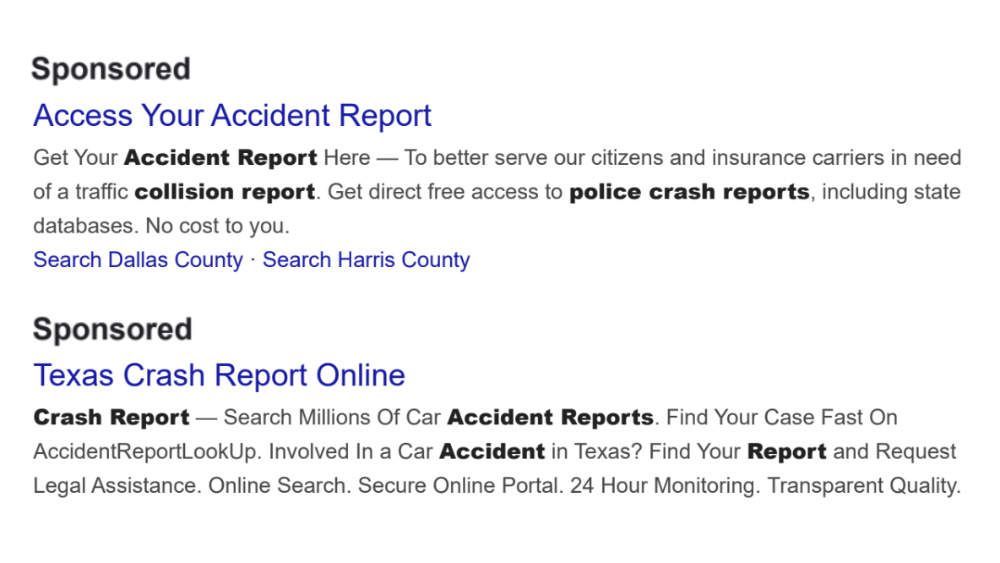Understanding HIPAA in Texas: Privacy, Protection, and Personal Injury Claims
Understanding HIPAA and Personal Injury Claims in Texas
This article is for information purposes only. Our firm does not handle HIPAA violation cases.

The Health Insurance Portability and Accountability Act (HIPAA) stands as a cornerstone of patient rights and confidentiality within the healthcare system in Texas and across the United States. Enacted in 1996, HIPAA safeguards sensitive patient information, ensuring its confidentiality, integrity, and availability.
Understanding HIPAA's role in protecting patients' privacy and its implications in personal injury claims is crucial for both healthcare providers and individuals navigating legal proceedings. In the article below, The Woodlands personal injury lawyers at Wham & Rogers explain HIPAA laws in Texas and how HIPAA could factor in to a personal injury claim.
An Overview of HIPAA
The Health Insurance Portability and Accountability Act (HIPAA) emerged as a response to growing concerns regarding the privacy and security of individuals' health information in the United States. Enacted by Congress in 1996, HIPAA aimed to address several key issues. One primary focus was to enhance the portability and continuity of health insurance coverage for workers when they changed or lost their jobs, ensuring they wouldn't lose coverage due to pre-existing conditions or other factors.
HIPAA's Title II, often referred to as the Administrative Simplification provisions, introduced regulations that revolutionized healthcare privacy and security. These provisions established national standards for the protection of individuals' electronic protected health information (ePHI) and created rules to safeguard the privacy of health information while allowing for the necessary flow of data for healthcare services. HIPAA's evolution and subsequent amendments have continuously emphasized the importance of patient privacy, security, and the responsible handling of sensitive health data within the healthcare ecosystem.
HIPAA in Texas: Protecting Patient Privacy
In Texas, HIPAA's principles govern the handling of patients' health information by healthcare providers, health plans, and healthcare clearinghouses. This legislation safeguards Protected Health Information (PHI), encompassing a patient's medical records, treatment history, billing information, and any data that could identify an individual's health condition.
HIPAA establishes strict guidelines to maintain the confidentiality of PHI. It grants patients specific rights, including the right to access their medical records, request corrections, and control the disclosure of their health information. Moreover, healthcare entities must adhere to stringent security standards, implementing measures to safeguard ePHI from unauthorized access or breaches.
Protection of Patient Rights under HIPAA
HIPAA's primary objective is to protect patients' privacy while facilitating necessary healthcare interactions. It ensures that healthcare providers and relevant entities maintain the confidentiality of patient information unless explicit consent is granted or specific situations outlined in the law permit disclosure. Key components of HIPAA include:
- Privacy Rule: The Privacy Rule establishes national standards to protect individuals' medical records and other personal health information (PHI). It outlines the permissible uses and disclosures of PHI by covered entities, ensuring patient consent for most disclosures and defining patients' rights concerning their health information.
- Security Rule: The Security Rule sets standards for protecting electronic PHI (ePHI). It requires covered entities to implement administrative, physical, and technical safeguards to ensure the confidentiality, integrity, and availability of ePHI.
- Breach Notification Rule: This rule requires covered entities to notify affected individuals, the Department of Health and Human Services (HHS), and, in some cases, the media, about breaches of unsecured PHI.
- Enforcement Rule: HIPAA includes provisions for the enforcement of its rules, outlining penalties for violations. The Office for Civil Rights (OCR) within the Department of Health and Human Services oversees HIPAA compliance and investigates complaints.
Entities that must abide by HIPAA rules include:
- Healthcare providers (hospitals, doctors, clinics)
- Health plans (health insurance companies, government health programs)
- Healthcare clearinghouses
- Business associates (third-party vendors or contractors who handle PHI on behalf of covered entities)
In personal injury claims, law firms and related parties would be considered business associates. Therefore, these parties would need to abide by HIPAA rules when handling PHI.
We do not handle HIPAA violation cases. We do not handle cases involving property damage without injury.
HIPAA and Personal Injury Claims
In personal injury cases, HIPAA plays a significant role in accessing medical records and information pertinent to the claim. While the law prioritizes patient privacy, it also allows for the disclosure of medical records and information relevant to legal proceedings, subject to certain conditions.
When pursuing a personal injury claim in Texas, individuals may need access to their medical records to substantiate their claims. HIPAA permits the disclosure of medical information during legal proceedings through proper channels, such as subpoenas or court orders. Healthcare providers can share relevant records to assist in the legal process while adhering to HIPAA guidelines.
However, individuals filing a personal injury claim must often sign a release allowing their healthcare providers to share specific medical information with authorized parties involved in the legal proceedings. This release typically specifies the type of information to be disclosed and the entities permitted to access it, ensuring compliance with HIPAA regulations.
HIPAA Compliance and Legal Proceedings
Healthcare providers involved in personal injury claims must navigate the delicate balance between patient confidentiality and legal requirements. They must ensure compliance with HIPAA while cooperating with legal entities handling the case.
Entities requesting medical records for a personal injury claim must follow HIPAA guidelines, including providing a valid authorization from the patient or obtaining a court order or subpoena. Failure to adhere to HIPAA regulations while accessing or disclosing PHI can result in severe penalties for healthcare providers and legal repercussions for unauthorized access to patient information.
Learn More about HIPAA and Your Personal Injury Claim
HIPAA stands as a vital safeguard protecting patients' privacy and confidentiality. Its guidelines ensure the security and privacy of sensitive health information while allowing necessary disclosures for legal proceedings like personal injury claims.
We do not handle HIPAA violation cases. We do not handle cases involving property damage without injury.


The information on this website is for general information purposes only. None of the information on this site should be taken as legal advice for any individual case or situation. This information is not intended to create, and receipt or viewing does not constitute, an attorney-client relationship.

















